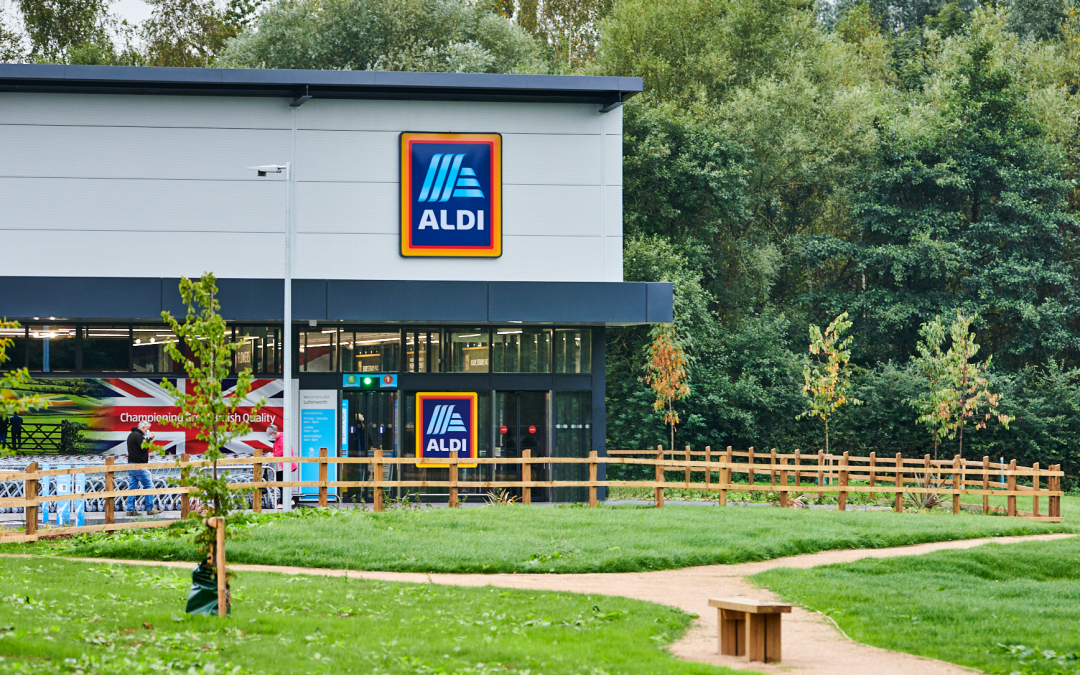The National Farmers’ Union (NFU) Scotland has revealed the results of its Shelfwatch survey, identifying “mixed support” for Scottish produce across supermarkets.
An independent research firm visited 71 stores across mainland Scotland on behalf of NFU Scotland, looking at beef, lamb, pork, chicken, eggs, vegetables and dairy products on offer in eight stores. A total of 15,000 products were reviewed, with soft fruit excluded as it is currently 100% imported due to seasonality.
The survey showed that Aldi had the largest percentage of Scottish produce overall at 48.7%, while Sainsbury’s was reported to have the lowest amount at 7.6%. Asda, Tesco and Sainsbury’s all had less than 10% of Scottish produce overall, and the largest percentage of other produce was UK.
Looking at Scottish vegetables, Aldi had the largest percentage (61.8%) while Co-op had the lowest (4.8%). Aldi also stocked the largest percentage of Scottish potatoes, with 100% of them being Scottish while Tesco stocked the lowest at 6.4%.
Aldi had the largest percentage of Scottish eggs at 100%, and Lidl reportedly had 96.4%.
In the meat categories, Aldi had the most Scottish pork, bacon, sausages and chicken. Six retailers had no Scottish labelled pork, and Sainsbury’s and Tesco did not have any Scottish chicken.
Aldi, Lidl and Morrisons had more than 70% of Scottish beef, while Lidl boasted 100% Scottish lamb on its shelves. Both Asda and Co-op had no Scottish lamb.
Holding retailers to account
NFU Scotland chief executive John Davidson said: “The results from the Shelfwatch survey unveil a completely mixed bag of what is going on in shops across the country and available to Scotland’s consumers. While it is encouraging to see that there is strong support for Scottish and UK produce in general and examples of some retailers stocking 100% Scottish, others appear to have absolutely none on their shelves in some sectors.
“Clearly more can be done to ensure consumers are able to source more local produce. This also begs some questions on labelling and marketing and whether consumers have full transparency of the origin.
“These results provide us with a fantastic opportunity to not only hold retailers to account and accurately highlight to our consumers what’s going on in some shops, but also enables us to give credit to those who are tremendous supporters of local food production within Scotland.”
He said: “Nobody wants to rely on cheaper imports exasperating a deepening food security crisis. Our farmers and crofters can deliver on so many levels given the right conditions to support and help deliver a thriving economy, environment and rural communities.
“The ways in which Scottish consumers can support local produce through the likes of local shops and butchers, farm shops, farmers’ markets, and direct sales from the farm are growing. But supermarkets remain the dominant force when it comes to food sales.
Davidson continued: “To succeed in our ultimate goal of seeing more Scottish produce stocked, priced and promoted on the shelves of supermarkets across the country appropriately and primary producers fairly rewarded for their critical role in the supply chain, we will need a collaborative approach with retailers and other key stakeholders including Governments to take ownership of their role within each supply chain.
“This Shelfwatch provides the ideal platform to benchmark against over the year ahead when looking for improvements in the marketplace and for these essential discussions with supermarkets on responsible treatment of suppliers and guaranteed delivery of a fair price to producers for the food they produce.”









